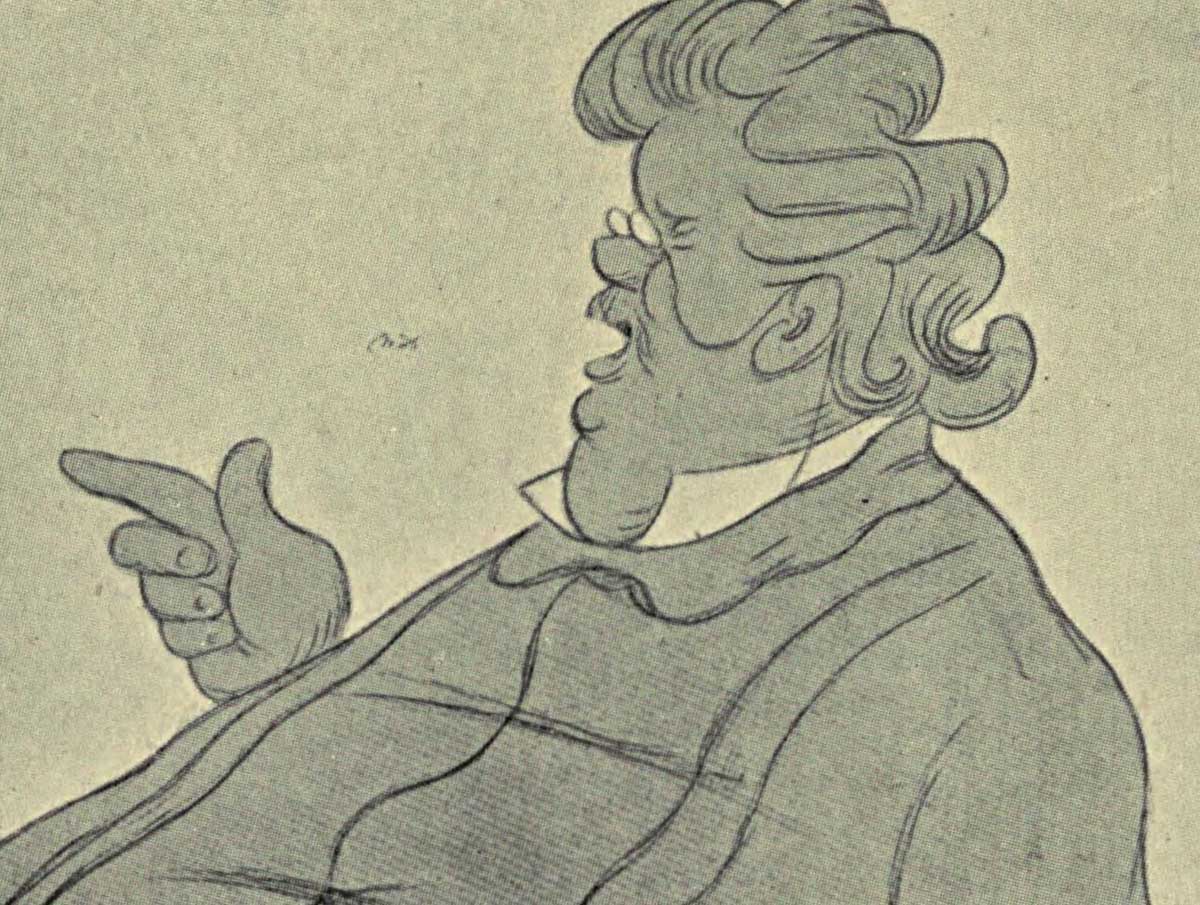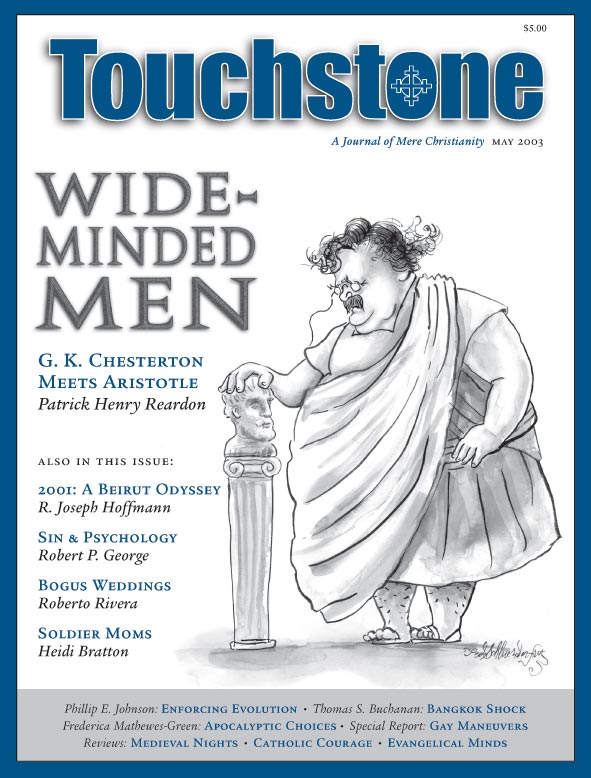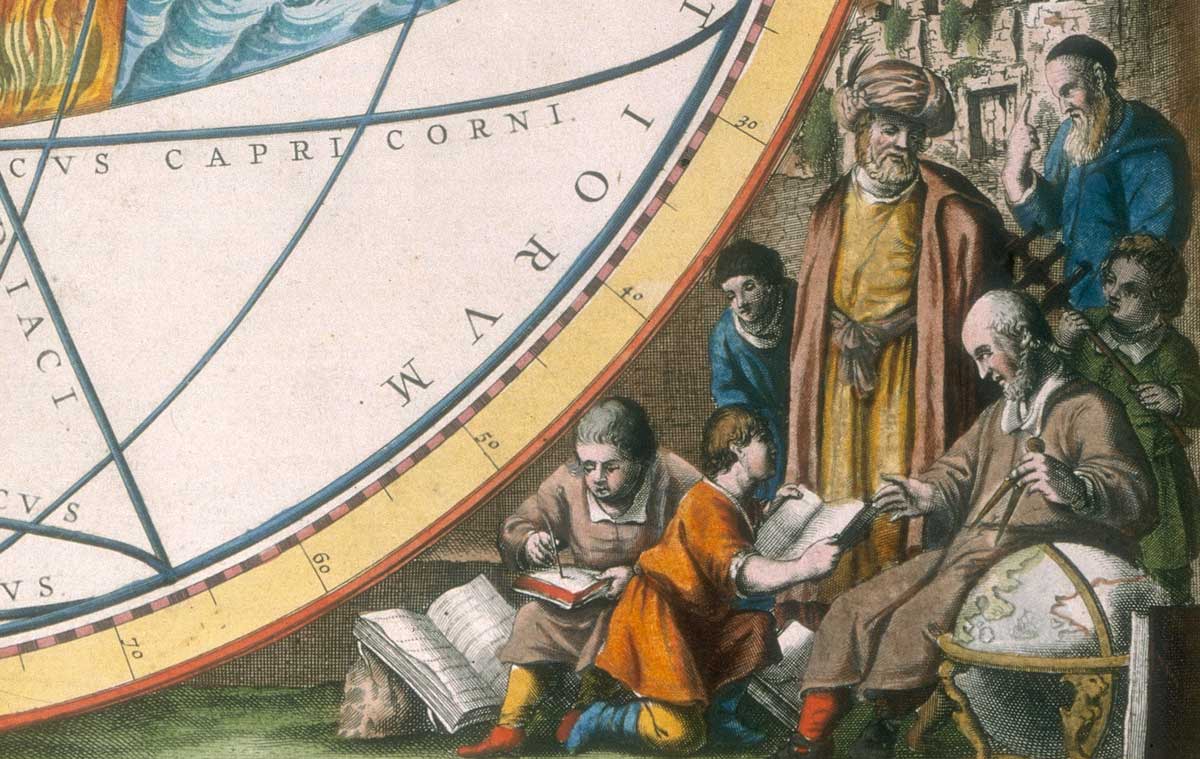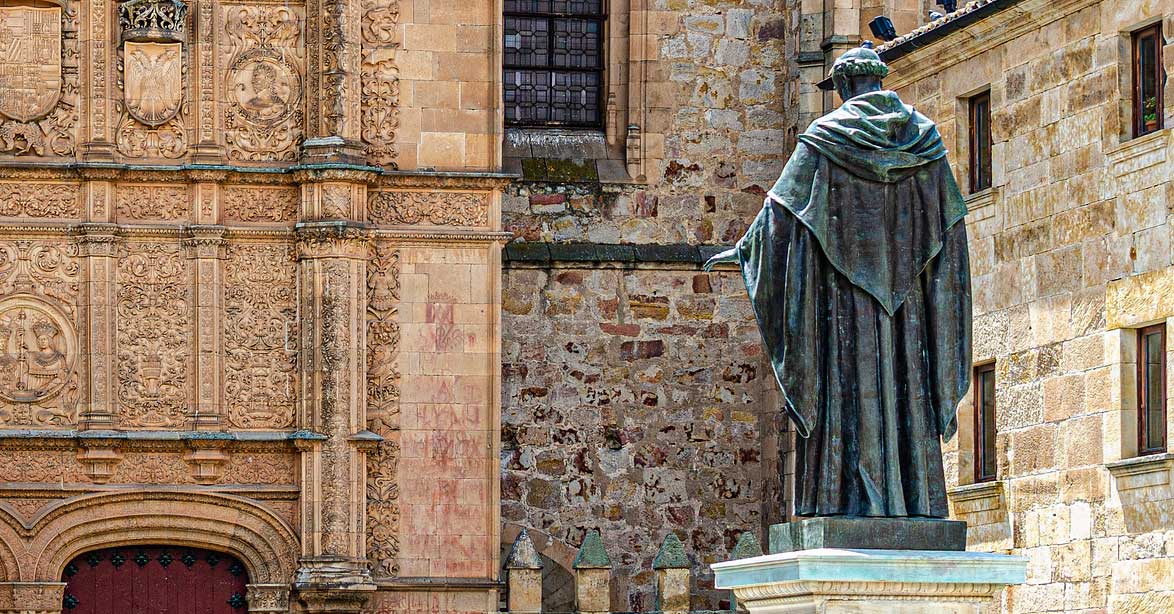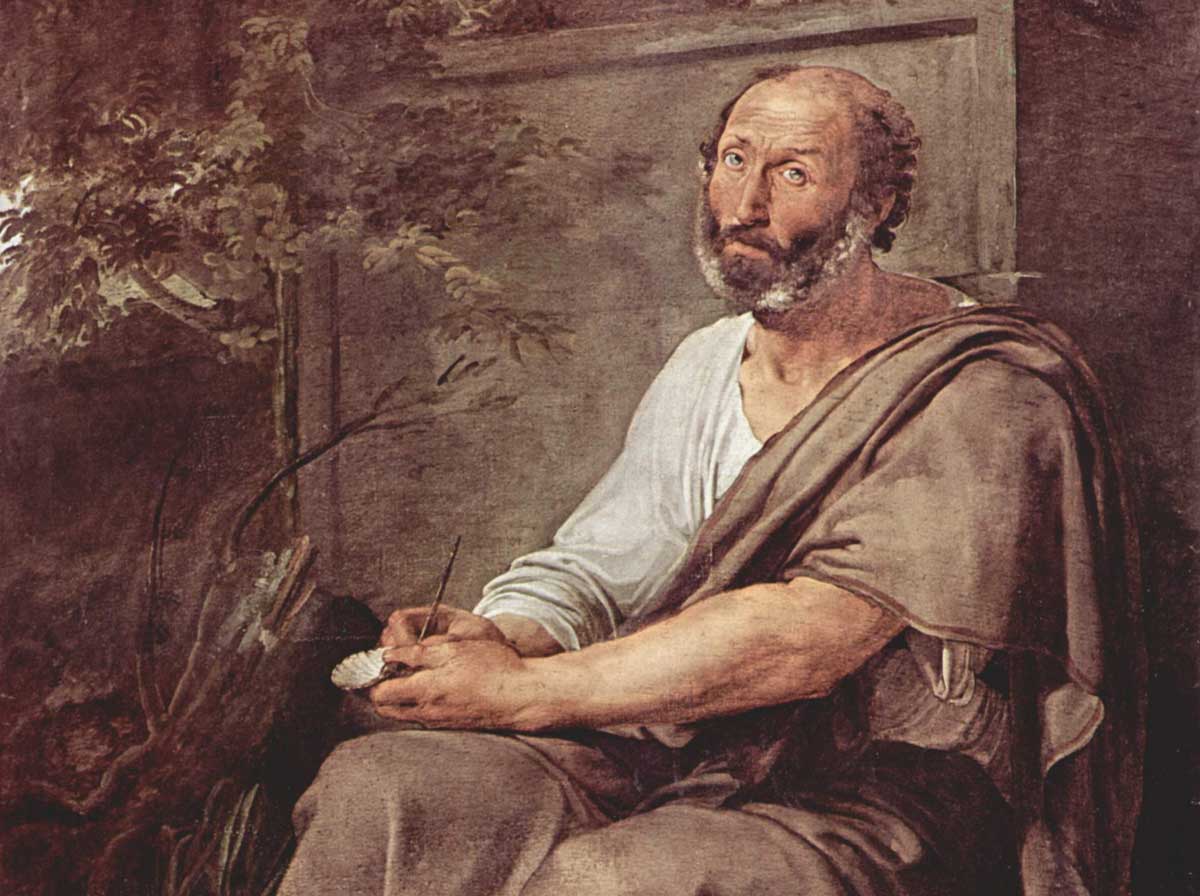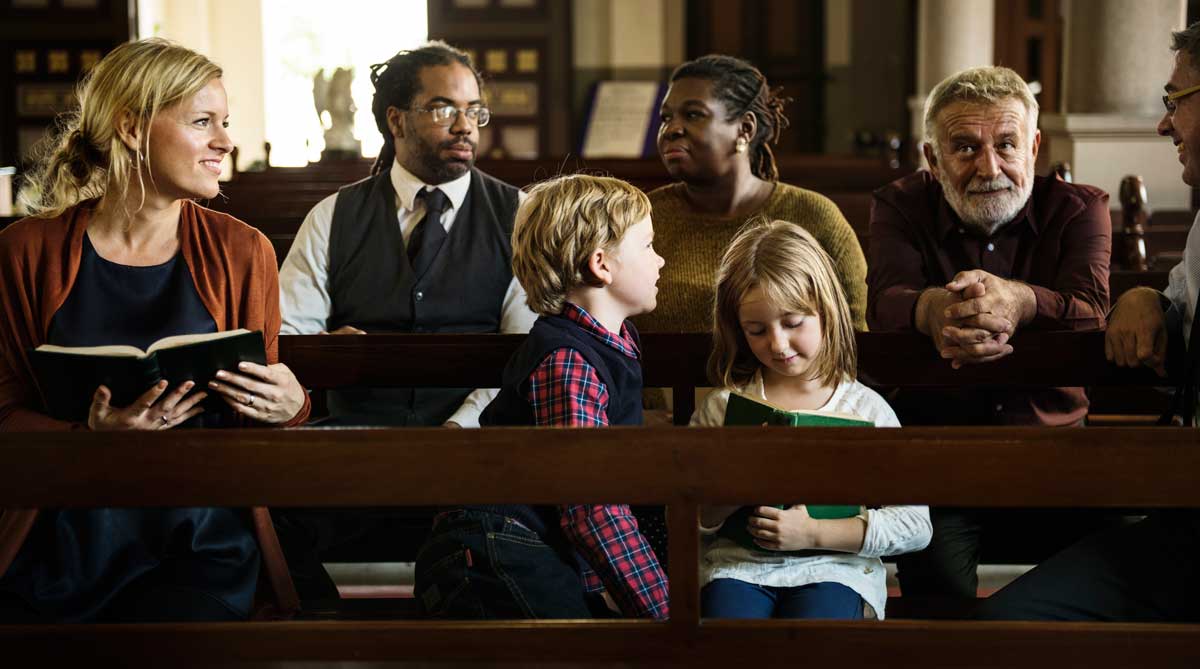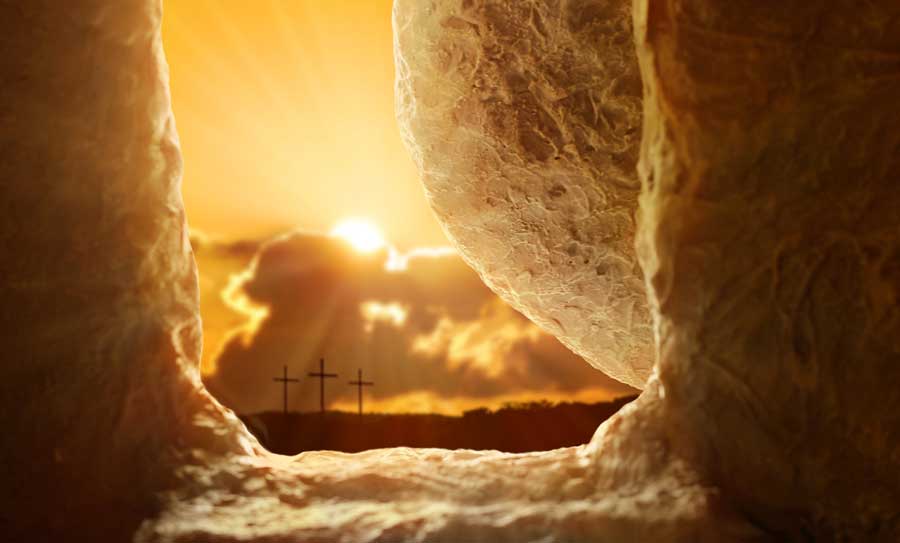Feature
Common Sense
Chesterton & the Aristotelian Tradition
by Patrick Henry Reardon
G. K. Chesterton could not have been more explicit about his admiration for Aristotle, whom he described as “perhaps the wisest and most wide-minded man that ever lived.”1 Nor was that admiration incidental or peripheral to Chesterton’s thought. Indeed, I hope to demonstrate that he stood habitually on the side of Aristotle, not only by reason of temperament and instinctive sympathy, but also by a fully conscious conviction, well thought through. That loyalty to Aristotle, moreover, was of a piece with Chesterton’s sustained trust in common traditions and his preference for democratic government and popular tastes, along with other aspects of his wide-ranging interests and concerns. These latter included, for example, his abiding love for and defense of medieval Europe, concerning which he wrote that “nobody understands the Middle Ages without realizing that the mind of Aristotle was still labouring in its midst like a mighty mill.”2 I hope especially to explain, in the latter part of this essay, how Chesterton’s constant reliance on what he called “common sense” was related to and developed from an important feature of Aristotelian psychology.
Just the Facts
Chesterton was explicit about what he found most attractive in Aristotle: a native disposition to begin reflective thought, not with a quest of eternal and self-evident first principles, but with the external data of material realities perceived through the various senses of the body, data that will subsequently be classified, analyzed, and assessed by the critical power of reason. The abiding value of Aristotle, Chesterton believed, had to do with his insistence on starting the process of understanding with “a middle field of facts which are given to the senses to be the subject matter of reason.”3 Thus Chesterton may speak of “the Authority of the Senses, which is from God.”4
To understand Chesterton’s respect for the Aristotelian habit of commencing with the experience of the material world and the bodily senses, it will be useful to look more closely at this aspect of Aristotle and see how it distinguishes his approach from that of his teacher Plato. A simple way of making this inspection is provided by Rafael’s famous mural, The School of Athens, where the artist arranged various pagan philosophers (along with Averroës, himself, and his ever-present friend, Della Rovere) into two groups associated with two central figures, Plato and Aristotle, these latter standing side by side. The diverse physical postures of these two contrasted thinkers serve to convey the distinctive methods that Rafael correctly perceived to separate them.

In the painting, Plato is placed to the viewer’s left, his feet advancing in a graceful stride, his left hand grasping a book in a completely vertical position, parallel to his body, while the first finger of his right hand is raised on high, pointing to unchanging first principles, the eternal Ideas. The painting thus portrays Plato’s tireless quest of transcendence and his concomitant thesis that the material world, since it is unstable and forever in flux, provides no proper starting point for the study of philosophy. Therefore, Plato immediately directs our gaze to eternal thought, to the very mind of God, to those undying Forms on high, of which the material world can offer us only the faintest silhouettes, as it were, mere shadowy outlines reflected on the back cave-wall of thought.
In contrast to Plato, Aristotle stands solidly in Rafael’s painting, both feet set firmly on the earth, his right hand spread out flat in front of him, palm down, indicating the circumambient world of physical reality, that extended plethora of factual data known to our senses. The book in Aristotle’s left hand lies almost horizontal, tilted upwards ever so gently, as though to suggest that the ascent of his thought will be more gradual, more cautious and circumspect in its methods, more modest, perhaps, in its hopes. In contrast to Plato, Rafael is telling us, Aristotle does not begin philosophy with a bold soaring for the eternal verities, but with the humble inspection of what his bodily senses have to tell him. He does not start by studying the permanent structures of mathematics in order to attain the even loftier heights of metaphysics, but by the rather pedestrian pursuit of “kinetics,” or physics, that is, the systematic observation of bodies in motion through space. He begins, in short, with what his five senses tell him of reality.
The inconstant nature of physical things, their fluidity and fluctuation, their inherent disposition to “move,” had suggested to Plato that the testimony of the senses could not be fully trusted. Sense knowledge, therefore, was unable to provide a proper starting point for systematic, critical thought. Plato reasoned that the bodily senses, being themselves physical, were just as prone to instability as the physical world that they observed.
But what Plato had considered a stumbling block, Aristotle took as a stepping stone. He reasoned that, if motion is the feature most characteristic of physical reality, then the investigation of motion itself would logically be the proper place to begin the study of man’s place in this world.
Chesterton perceived a deep theological reason for finding this Aristotelian emphasis on empirical observation so congenial and so preferable to the approach of Plato. Simply put, he believed Aristotle’s approach to be amply justified by the Christian dogma of the Incarnation. Chesterton reasoned that if “matter” was good enough for God to assume in the Hypostatic Union, it should be a good enough place for human beings to start the process of human thought. The Incarnation, that doctrine of “the humanizing of divinity,” he wrote, “is actually the strongest and starkest and most incredible dogma in the Creed.”5 If God became man, Chesterton argued, if God actually took on human form and adorned himself in his own created matter, then it is entirely proper that man should commence his quest for God by a consideration of the material world.
Patrick Henry Reardon is pastor emeritus of All Saints Antiochian Orthodox Church in Chicago, Illinois, and the author of numerous books, including, most recently, Out of Step with God: Orthodox Christian Reflections on the Book of Numbers (Ancient Faith Publishing, 2019).
subscription options
Order
Print/Online Subscription

Get six issues (one year) of Touchstone PLUS full online access including pdf downloads for only $39.95. That's only $3.34 per month!
Order
Online Only
Subscription

Get a one-year full-access subscription to the Touchstone online archives for only $19.95. That's only $1.66 per month!
bulk subscriptions
Order Touchstone subscriptions in bulk and save $10 per sub! Each subscription includes 6 issues of Touchstone plus full online access to touchstonemag.com—including archives, videos, and pdf downloads of recent issues for only $29.95 each! Great for churches or study groups.
Transactions will be processed on a secure server.
more on philosophy from the online archives
more from the online archives
calling all readers
Please Donate
"There are magazines worth reading but few worth saving . . . Touchstone is just such a magazine."
—Alice von Hildebrand
"Here we do not concede one square millimeter of territory to falsehood, folly, contemporary sentimentality, or fashion. We speak the truth, and let God be our judge. . . . Touchstone is the one committedly Christian conservative journal."
—Anthony Esolen, Touchstone senior editor





